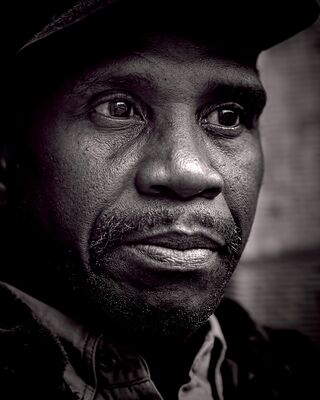Therapy
2 Things Most Therapists Do but Shouldn’t
Therapist isolation can lead to unintentional ethics and boundary violations.
Posted July 7, 2022 Reviewed by Vanessa Lancaster
Key points
- Being a psychotherapist, especially in private practice, can be isolating.
- Talking with our partners about our experiences in therapy can be accidental violations of confidentiality and privacy.
- The best thing is for therapists to share their feelings rather than discuss information about their patients.
- Giving advice or opinions to non-patients may constitute ethical breaches. It's best to give general, educational information and referrals.

Therapists are human beings. Many therapists work in isolated situations, in private practice, where they spend all day seeing patient after patient.
Surprisingly, therapists can be starved for connection and support for them as a person, and this can lead to therapists making two common professional mistakes:
Talking About Patients to Spouses and Partners
The therapist’s partners ask them how their day was, just like we all do. And sometimes, when it’s been a hard day or a magnificent day, the therapist wants to share. Unfortunately, many therapists do, in ways they shouldn’t.
In my experience, therapists seldom share a patient’s name or identifying information. This would be a clear and blatant breach of confidentiality. But, things like: “Oh, I saw this poor man going through a really painful divorce, and I just feel so bad for him,” can slip out and feel innocent. And it usually is, but it’s also a violation of privacy.
A therapist I supervised was once at a restaurant with their spouse and had a conversation about a case they were struggling with, a couple with domestic violence, substance abuse problems, and anger, who kept erupting in therapy. The therapist didn’t describe the couple, their names, ages, or identifying information.
But, they repeated a certain specific phrase that the husband kept shouting at his wife and how the therapist struggled to calm them down. A few moments later, as the family sitting behind them left their table, one of the adults leaned in and whispered, “That couple you’re working with are my cousins. I’m so glad you’re helping them. They really need it!” That specific, oh-so-recognizable phrase was apparently one the husband used around other people, not just in therapy.
Even if the therapist doesn’t share information in a public setting, they may put their partner in an awkward position, especially if their partner accidentally encounters a patient. In small communities, this happens more than you might think: “Oh, your last name is the same as my therapist, do you know them?” These issues are even more critical when working with minority and marginalized communities.
Sadly, I’ve seen cases where a licensure complaint was filed during a divorce battle for a therapist sharing confidential information with their former spouse. The best thing when the therapist is asked about their day is for them to talk about themselves, not their patients:
“I get sad sometimes, hearing so many hard things from people, and I’m glad I get to come home to you and get love and support.”
“I wish our healthcare system didn’t make it so difficult for people to get help. I get frustrated having to deal with so many hoops I have to jump through.”
“I feel really good because I’m seeing some really positive changes in the people I get to work with, and it feels like I’m starting to get good at this.”

Giving Professional Advice or Wisdom to Friends and Family Members
Because a therapist’s work happens in private, behind closed doors, therapists rarely get public acknowledgment of their skills. We don’t get to show off or even “bring our kid to work” to let them see us doing what we do. So, it can feel awfully tempting to trot out our expertise in informal settings and get acclamation and respect as an expert.
The classic example is the therapist at a cocktail party, and a new acquaintance says, “Say, you’re a therapist. Here’s something my son is dealing with. Do you think they should have a diagnosis?”
This sounds innocuous, right? But unfortunately, if that person follows the therapist’s advice and it goes badly, the person can complain to the therapist’s licensure board that this conversation constituted a professional consultation. In such cases, it’s best to offer referrals. In this example, perhaps offer some explanation of how diagnosing works so that the father can decide how to seek professional help.
Clinicians may offer general education to assist an individual in knowing how to seek help, but it’s best that the therapist not act as they would in therapy.
The general public doesn’t understand that psychotherapy is a fiduciary relationship, where the clinician is charged with prioritizing the patient’s needs over their own and recognizing the limits of their scope.
But, in informal interactions, the clinician might not say important things, or the acquaintance may not reveal critical things that would alter the clinician’s opinion, leading to the clinician offering inadequate recommendations.
Even worse, that person may not seek professional help because the therapist didn’t tell them to, or the therapist didn’t convey a sense of seriousness. This is one important reason that professional opinions be given within the context of a professional relationship.
Some healthcare professionals live-stream conversations about mental health with gamers, and they are adamant that the interactions are not therapy—though the interactions get clinical and involve discussion of emotional and psychological needs, as well as potential diagnoses.
Though the hope and intent of such interactions are to increase awareness of mental health and destigmatize therapy, in one tragic case, a gamer interviewed in this manner later died by suicide.
Unfortunately, this may also lead to people thinking that they have received mental health treatment and that they don’t need to see a real therapist or seek clinical treatment, where more options such as medications, supportive services, and intensive referrals may be available.
Public, live-streamed conversations don’t constitute a clinical assessment required for giving individualized clinical opinions and recommendations.
Ethically, clinicians may offer general health advice to people not in a doctor-patient relationship but must be cautious about offering specific clinical opinions without conducting a clinical evaluation and having consent to render such recommendations.
A friend at my gym once asked me for help and said he was concerned that one of his teen son’s friends might be suicidal. I shared information with him about resources in the community and how to refer the young man to them. I also gave him a brief overview of basic suicide awareness information, such as that asking about suicidal thoughts doesn’t cause suicide and is one of the best ways to help people get help. But, I didn’t ask for more details about the young man or offer an opinion as to whether the boy might or might not be suicidal or what he might be struggling with.
Expecting therapists to not share their work experiences with important people in their lives may feel like artificial, antiquated barriers. But psychotherapy is a unique, artificial relationship that works because of these boundaries. Protecting confidentiality allows people to come to therapy and share the things they keep most secret.
Requiring clinicians to reserve specific clinical opinions for people they have fully assessed protects the public from “armchair psychologists.” It helps therapists to increase their effectiveness by ensuring we only render opinions with adequate information.
But therapists are human. Temptations around these issues are real, and therapists aren’t incompetent or deficient for struggling with these temptations. I recommend that most therapists have professional consultation groups, whether formal or informal, with other licensed clinicians with whom they can share these issues and discuss them within ethical and confidential boundaries.
Don’t let our isolation lead us to violate important ethical boundaries or put our spouses, friends, and partners in complex dilemmas. The confidentiality mandates on licensed therapists don’t extend to our spouses–they’re not honorary therapists!
If you or someone you love is contemplating suicide, seek help immediately. For help 24/7, contact the National Suicide Prevention Lifeline at 1-800-273-TALK, or reach out to the Crisis Text Line by texting TALK to 741741. To find a therapist near you, visit the Psychology Today Therapy Directory.




